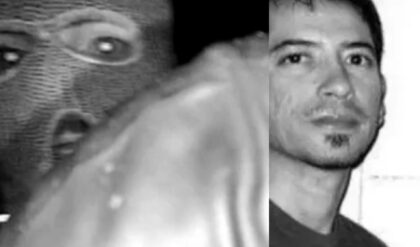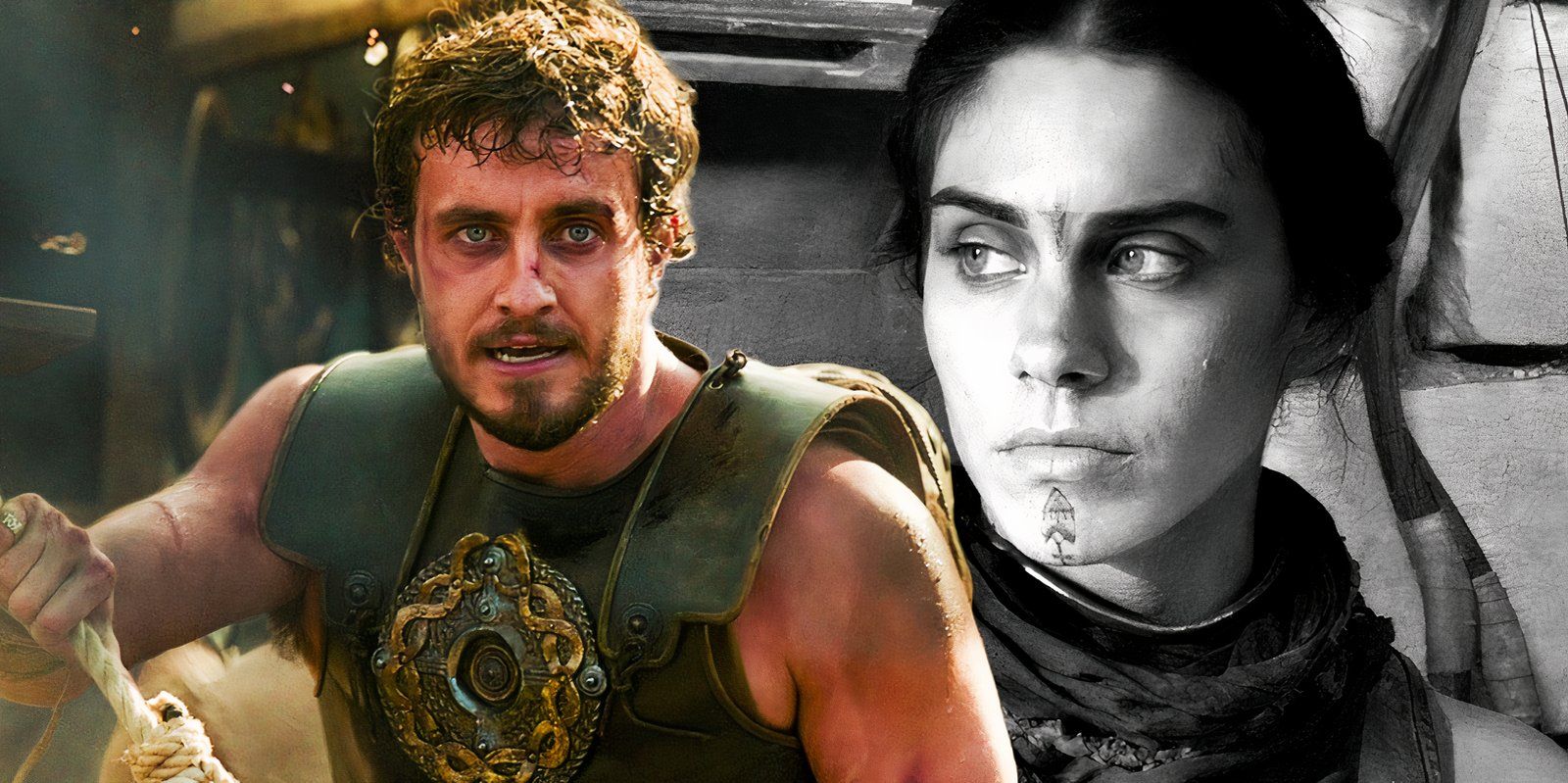
Whereas Maximus’ dreams were a bit more realistic – showing his wife and son at their house – Gladiator 2 takes a very different approach with Lucius. His dreams are still tied to trauma and the loss of a loved one, specifically his wife, just like his father’s. This is because Lucius’ wife dies in the film’s opening battle in Numidia after being shot by an arrow. Lucius’ dreams only take up a fraction of Gladiator 2‘s massive runtime, and yet the contents and significance are much greater thanks to the narrative importance and visual style.
What Happens In Lucius’ Dreams Of His Wife In Gladiator 2
Lucius Sees Arishat After Her Death


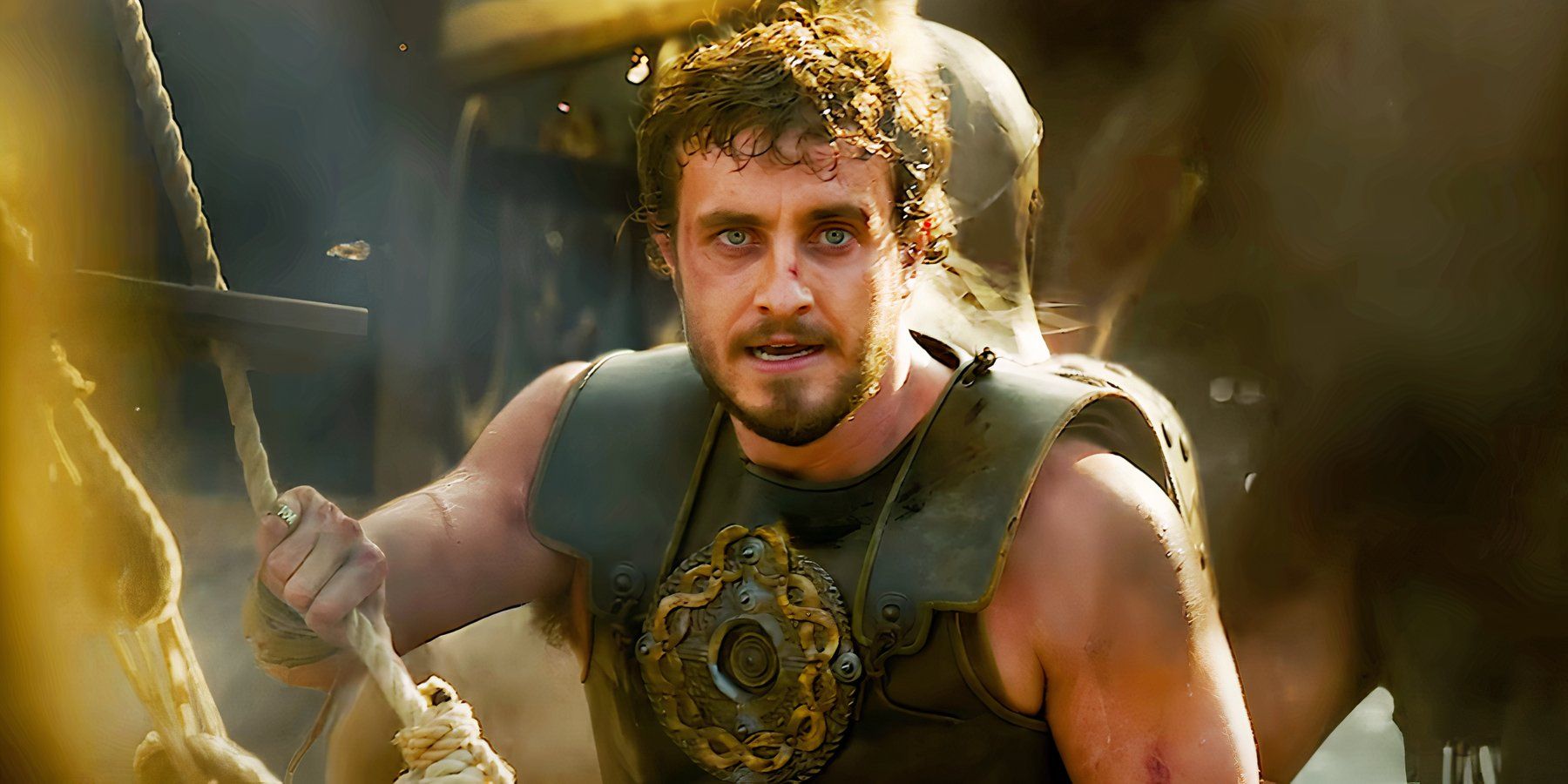
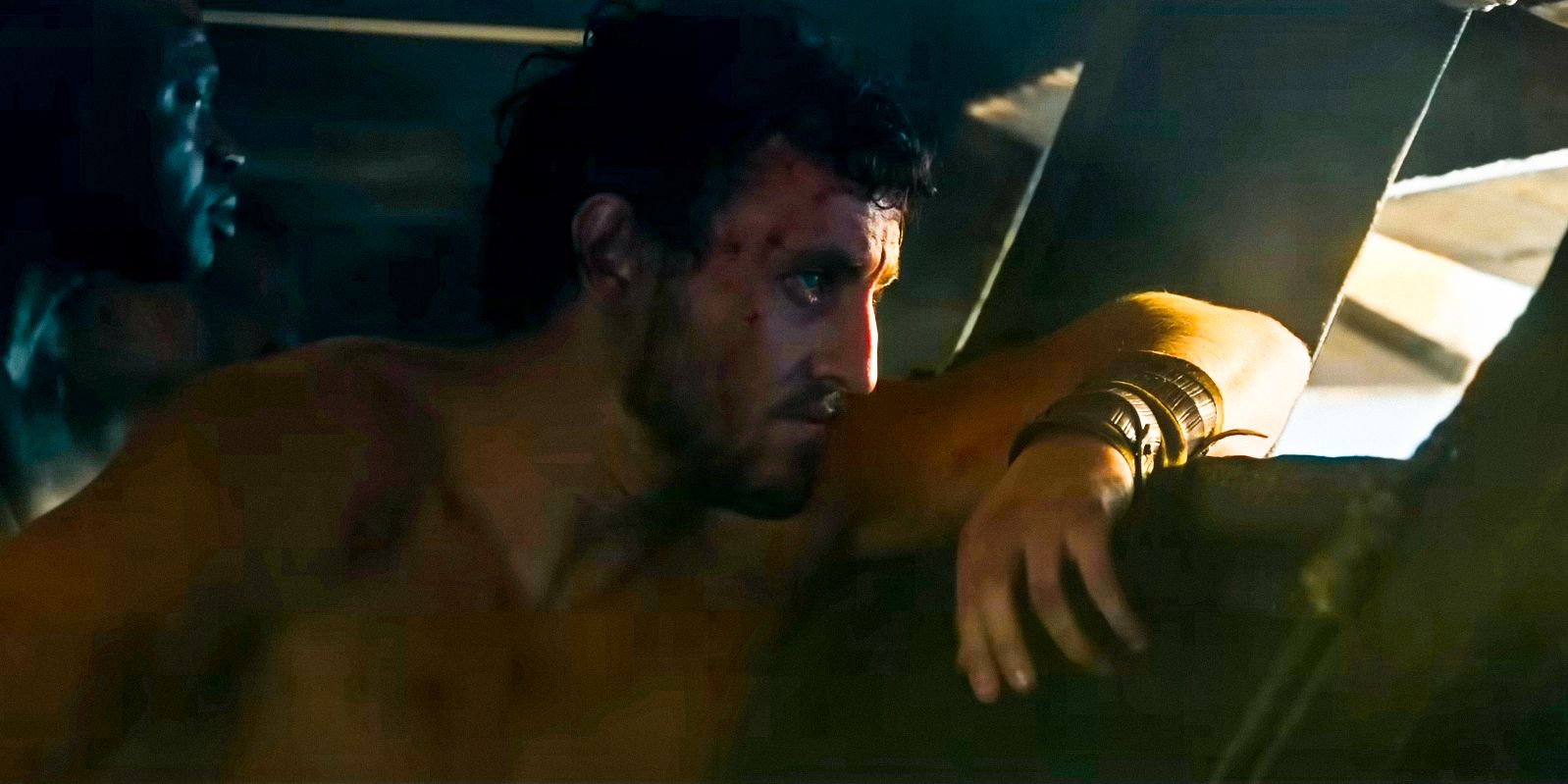
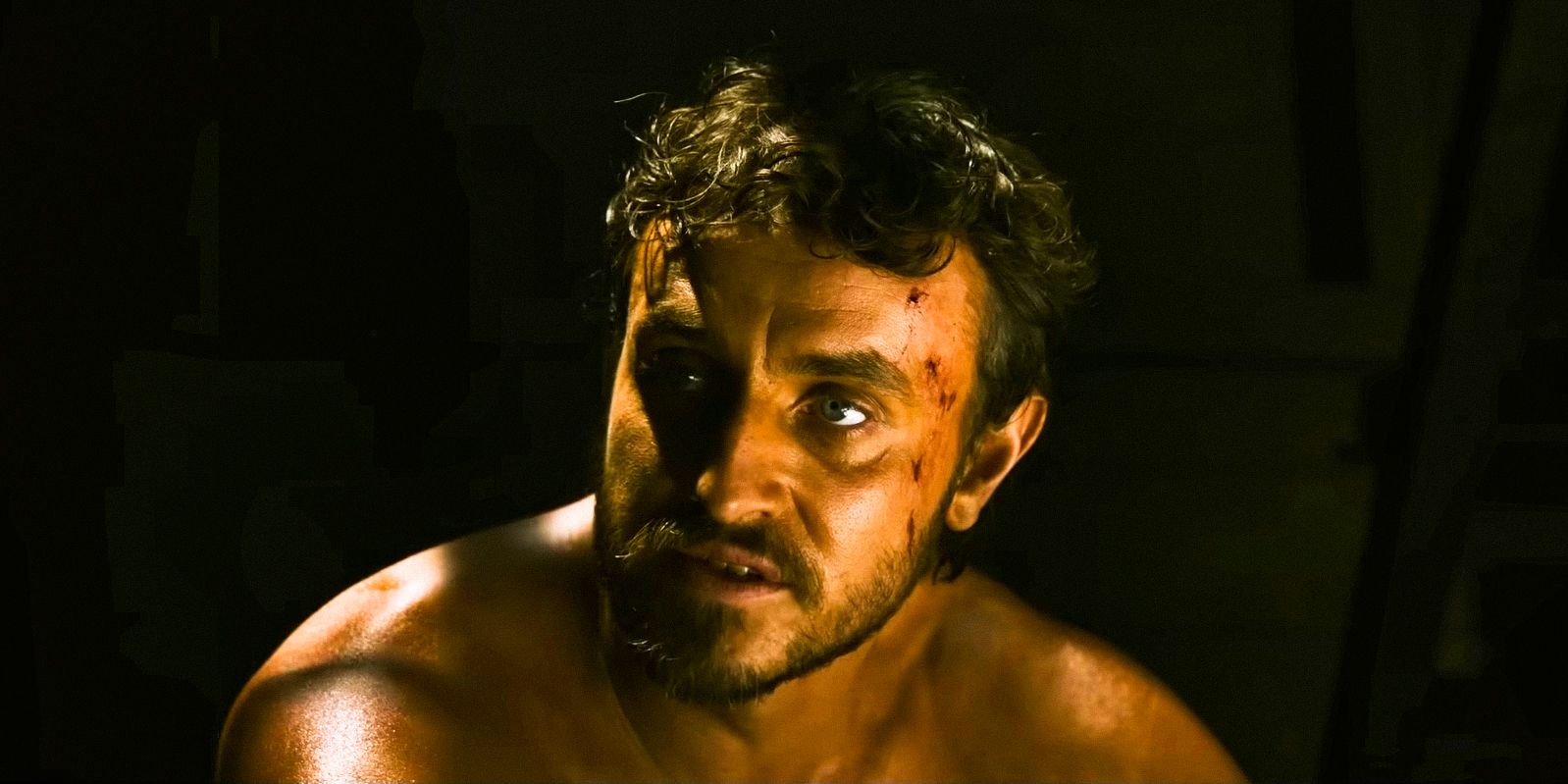





The content of Lucius’ dream in Gladiator 2 are entirely shown in black and white. He wakes up on the beach, seemingly the same one as the Numidia battle, and looks out at the ocean. Instead of seeing the fleet of Roman ships Acacius brought to the land, he sees Arishat getting on a raft with two tall, hooded figures. These people largely resemble the Grim Reaper, possibly making them representations of Mors – the figure of death in Roman mythology. As Lucius sees his wife with these beings, multiple tornadoes are seen swirling through the skies in the background.
While Lucius calls out for his wife as she goes away from him, the only response she gives is saying, “I’ll wait for you.” He wakes up from the initial dream after falling off the wall in Numidia and being pulled back to the shores. This gives Lucius the chance to say goodbye to his wife in some fashion, as she joins the dead and he returns to the living. He has an abbreviated version of the same black-and-white dream with his wife later on leading up to Gladiator 2‘s ending as well.
Are Lucius’ Dreams In Gladiator 2 Visions Of The Afterlife?
He Could Be Catching A Glimpse Of The Underworld
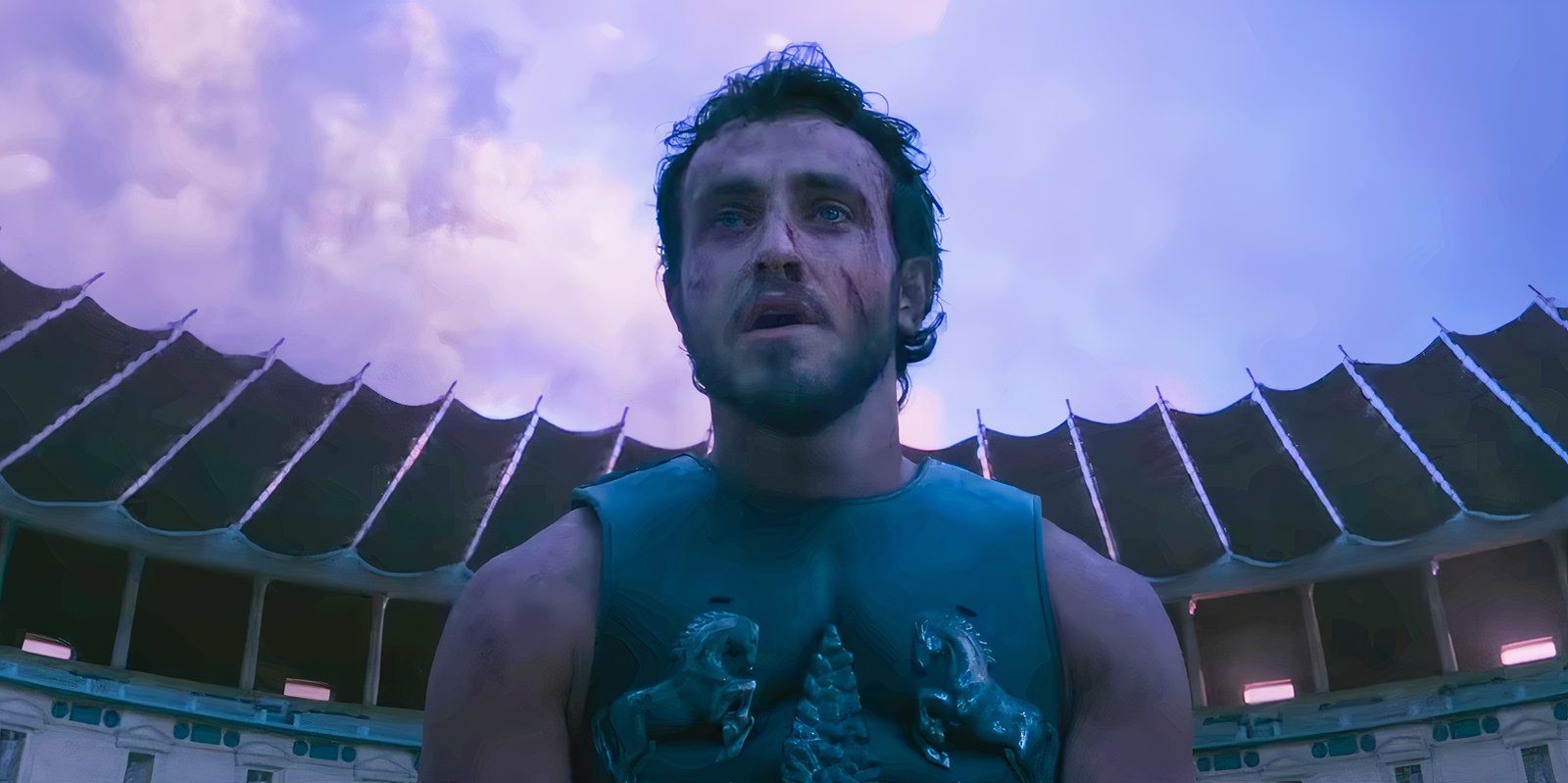
Based on what the actual dreams show, there could be an interpretation that Lucius is not dreaming at all but rather experiencing a bit of the afterlife. The underworld setting and connection to death is quite apparent through the dream’s imagery and what happens in it. Whether this is merely Lucius’ interpretation of the afterlife or a genuine glimpse into the Roman afterlife is debatable. The fact that Lucius has the same dream multiple times could discredit the idea that this is the afterlife, as his life is not also in the balance the second time he has it.
An earlier script focused on Maximus had him rise through the Roman underworld
Ridley Scott’s original plans for Gladiator 2 do make the afterlife suggestion a bit more plausible, though. An earlier script focused on Maximus had him rise through the Roman underworld after he died. While the Nick Cave Gladiator 2 script has nothing in common with the final version of the sequel’s story, perhaps Scott did want to touch on the afterlife briefly. Instead of having the entire narrative revolve around an afterlife setting, Lucius’ dreams and showing what happened to Arishat may have been a way to do just that. Ultimately, the scenes still work as dreams or afterlife visions.
Why Lucius’ Dreams Are In Black & White
They Could Represent Lucius’ State Of Mind
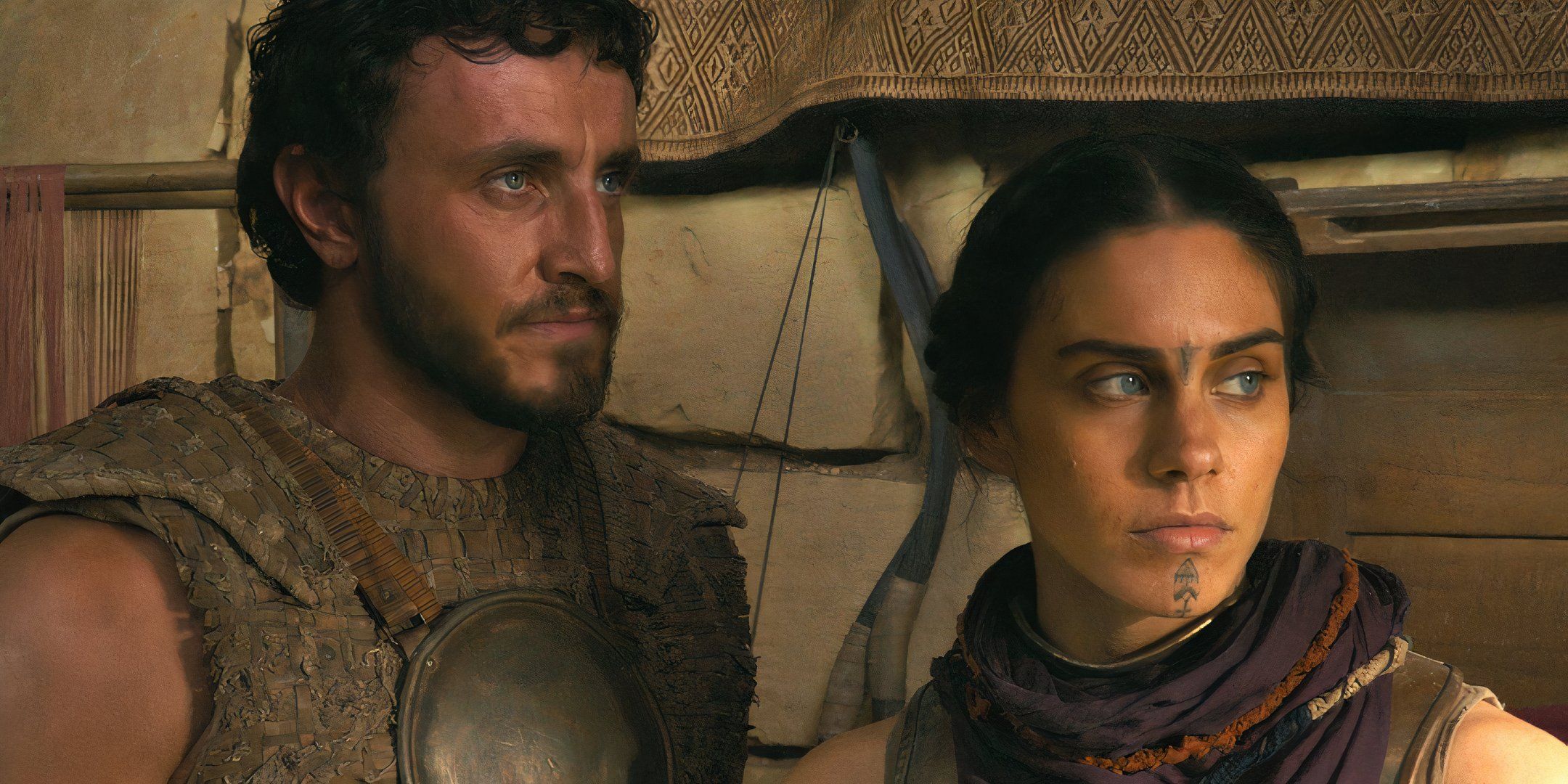
The black and white visual style used for Lucius’ dreams in Gladiator 2 are notable. They are the only sequences in the entire film that are shown without any color. Ridley Scott includes flashbacks in Gladiator 2 with desaturated visuals, but they still have some color to them – whether they are new scenes filmed for the sequel or shots from the original. This could explain a part of the black and white appearance of Lucius’ dreams. It distinctly sets the scenes apart from everything else in the film, helping to communicate it is different from the rest.
There is also a potential deeper meaning based on how dreams can be interpreted. Black and white dreams can be attributed to someone who has a sense of loss or loneliness. That would accurately describe Lucius at the time of these dreams. He’s just lost his wife and was fighting in a battle that the Numidians were losing against Rome. There would be a profound feeling of loss in Lucius at the moment of Arishat’s death, so his subconscious dreaming in black and white could connect to how Gladiator II kicks off his story.


